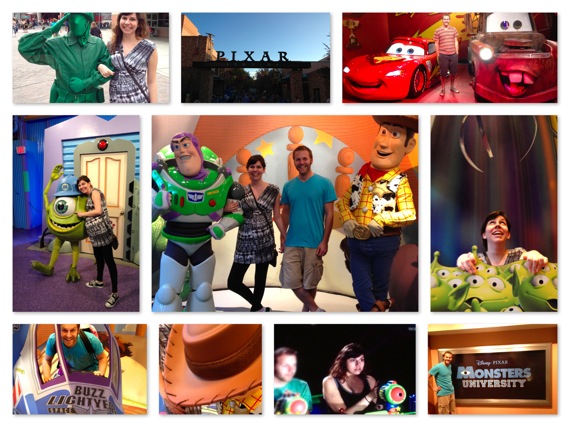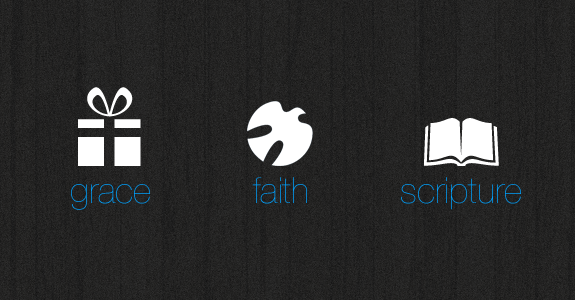[tentblogger-youtube 6qF0T-eiNf8]
 An individual lego piece doesn't seem like that big of a deal. A single block really has very little value. You can't build anything with one piece and there are very few, if any, ideas of how you could creatively do something special with a single block. But this single block changes when all of the sudden you begin adding other blocks into the picture. A single block when combined with hundreds of other single blocks has virtually an unlimited amount of possibilities. The single block could be used as a piece of a rocket ship, a race car, or something completely different. Individually the impact of a single piece of lego is very small, but combined with many other pieces the impact has massive potential.
An individual lego piece doesn't seem like that big of a deal. A single block really has very little value. You can't build anything with one piece and there are very few, if any, ideas of how you could creatively do something special with a single block. But this single block changes when all of the sudden you begin adding other blocks into the picture. A single block when combined with hundreds of other single blocks has virtually an unlimited amount of possibilities. The single block could be used as a piece of a rocket ship, a race car, or something completely different. Individually the impact of a single piece of lego is very small, but combined with many other pieces the impact has massive potential.
In the body of Christ, we each come with our unique gifts and personalities; not one of us being exactly like another. Individually we certainly can make a difference, but the impact that we can have is much greater when we are a part of something bigger than ourselves. As Christians we make up the body of Christ; we each are a small part of a much greater body. As Christians we are one small piece that when combined with the other unique pieces form the body of Christ, the Christian Church.
"Just as a body, though one, has many parts, but all its many parts form one body, so it is with Christ. For we were all baptized byone Spirit so as to form one body—whether Jews or Gentiles, slave or free—and we were all given the one Spirit to drink. Even so the body is not made up of one part but of many." - 1 Corinthians 12:12-14
Together we are greater than we are individually. Together we are one body and we each make up a unique and critical part of the body.
Each Piece Matters
In a complicated lego structure, every piece matters. They matter differently, but they all matter the same. Some pieces matter because they visually help the legos look the way they were envisioned to look. Other pieces, while they cannot be seen, provide a structure that helps prevent the legos from toppling over. Each piece has an important function; each function not exactly the same as another, but each function equally as important to the overall structure. The same is true in the body of Christ. We each bring unique value to the body, none exactly the same as the person next to us.
"Now if the foot should say, “Because I am not a hand, I do not belong to the body,” it would not for that reason stop being part of the body. And if the ear should say, “Because I am not an eye, I do not belong to the body,” it would not for that reason stop being part of the body. If the whole body were an eye, where would the sense of hearing be? If the whole body were an ear, where would the sense of smell be? But in fact God has placed the parts in the body, every one of them, just as he wanted them to be. If they were all one part, where would the body be? As it is, there are many parts, but one body." - 1 Corinthians 12:15-20
What gifts do you have and how are they a part of the body of Christ? How are you using your personality, your talents, and your passions as an important piece in the body?
Photo Credit: BenSpark
It's hard to believe that this Pixar short film is what would lead to the eventual Toy Story movies.
[tentblogger-vimeo 17392518]
Surprising Jessica with a trip to Disney World has been incredible. It's been fun to go to all the shows and spend time with each other for our last pre-baby vacation. And since I'm sure you want to get a glimpse of the fun we had, here are some photos for you to enjoy.


 Walt Disney and Steve Jobs; two men who have had an incredible impact on history we know it. Stories that have touched our lives; life-long memories from family vacations. Technological advancements that have changed the way that we consume media. Both Steve Jobs and Walt Disney brilliantly led organizations that have had enormous impact on the world around them. But in the midst of this impact there is an interesting difference in respects to these two men and their families.
Walt Disney and Steve Jobs; two men who have had an incredible impact on history we know it. Stories that have touched our lives; life-long memories from family vacations. Technological advancements that have changed the way that we consume media. Both Steve Jobs and Walt Disney brilliantly led organizations that have had enormous impact on the world around them. But in the midst of this impact there is an interesting difference in respects to these two men and their families.
According to the book Steve Jobs by Walter Isaacson regarding why he wanted a biography to be written:
"I wanted my kids to know me," [Steve Jobs] said. "I wasn't always there for them, and I wanted them to know why and to understand what I did."
On our trip to Walt Disney World this week, we visited a showing of One Man's Dream in Hollywood Studios. During the movie the narrator spoke of Walt's relationship with his daughters, noting that he had a weekly daddy-daughter day. It was during one of those daddy-daughter days, as Walt watched his daughters play, that he noticed that the amusement parks were ragged, filthy, and not fun for parents. Walt envisioned a new type of amusement park that families, like him and his daughters, could enjoy together.
Whose World Do You Want to Change?
Both men changed the world. But at what expense? If putting a dent in the universe means sacrificing your own family, is that worth the sacrifice? In Steve Jobs on words, "Deciding what not to do is as important as deciding what to do." What do you want to do and what are you going to stop doing in order to do it? Maybe you change the world, first, by starting with your own home. What if you pastored your family well and then worried about pastoring your church? What if running your family organization was more important than starting a profitable business?
"A man should never neglect his family for business." - Walt Disney
I dream to have an impact on the world around me. But more importantly I hope to lead my family well.
[This post is a part of the Creating a Sermon Series series]

As we gather ideas for our sermon series, there will come a point when we need to begin to flesh out an actual plan. We eventually need to get our ideas on paper so we can begin planning the minute details that are necessary for making the sermon series a successful one. As I plan my sermon series for our middle school ministry, my goal is to have seasons planned several months before we get to them. For me that means in November, the plans for our January to May series gets nailed down. In April or May, I finalize our summer teaching plan. And I do the same thing as I plan our fall series. The following questions are very helpful to me as I try to set the framework for an individual series.
1. What's the Big Idea?
Just like an individual sermon will have an overall message, the same thing should be true of a sermon series. In the scope of the several weeks that are tied together, what are you hoping will be accomplished? There will be certainly differences from message to message, but what big idea is holding these all together.
2. Where's the series going?
What is the weekly progression of your series? Be intentional about how weeks build upon the previous weeks; at the same time find ways to tie back to the current series. Since you likely have a big idea in mind, how does each individual week fit into the big idea while also expanding upon that idea in a unique way. If the sermon series doesn't feel like it's going anywhere, there might be a better way to lay out the indivdual weeks of the series.
3. What are the weekly main ideas?
If you knew the one thing that you were trying to communicate in an individual message several weeks before you did most of your writing, how much more creative would you be? Work hard to figure out the big idea of your individual messages now so that you can let them sit in your brain. The longer you have an idea and can let it be there, the more ideas you will come across that can serve your message well.
4. What's should it be called?
The content is most important, but the context of the sermon does matter too. In essence, as we develop a sermon series, we are trying to create a brand for a group of sermons. By creating a brand it helps people quickly recognize what we are talking about, where we are going, and it might even become a memorable set of messages.
5. How can I make it memorable?
The title and branding are certainly intertwined with this, but taking it a step further, what else can we do to make the content memorable? It's important here that we understand, we are not trying to make an graphic or color scheme memorable, but actually make the content memorable. What can you do with the web, with video, or graphics to help make the theme stick?
Photo Credit: Marcus-E
Several months ago I decided that for our 11/11/11 anniversary, I wanted to surprise Jessica by taking her to Disney world. I began looking into some of the details about costs, resorts, and such to see if it was feasible. Once I decided that it was an actual possibility, I began devising my plan for the surprise. I wanted to make sure that on 11/11/11 she would find out that we are leaving the next day for Disney World.

The Plan
In order to make this plan work, I had to lie. A lot. I convinced Jessica to take a week off of work, which was not difficult since she doesn't enjoy working, so that we could spend a few days in Frankenmuth and also have some time to do work around the house and get the baby's room ready. Once she had the days off, I put my next steps into action as I made reservations for our Disney Resort. Immediately after I booked our reservation for the All Star Movies resort, I used my photoshop skills to fake an invoice for a hotel in Frankenmuth that Jessica was hoping we would stay at. In the midst of this process, I made sure to talk about plans and ideas for our trip to Frankenmuth and our week off, while also at the same time makig sure only a select few knew about the actual plan. I basically planned two vacations; the real one and the fake one.

The Reveal
On our anniversary, Jessica had to work in the morning. I took the morning off and had my sister come over to help me get started with packing. I wanted to get the packing started so there would less to worry about when she realized in less than 24 hours we would be in Orlando. When Jessica got home from work, there was a pile of gifts waiting to be opened in order. First, Harry Potter 7.2 on Blu-ray. Second, a Harry Potter wand and glasses. Third, a Peter Pan book. Fourth, Mickey Ears. And finally, luggage tags for Disney World. She spent most of that afternoon saying, "Is this real?"
[tentblogger-youtube H8LpX3gUjTY]
That's how I made Jessica's 11/11/11 wish come true.
I cannot wait for the new worship album/DVD coming from Elevation Worship. The new album will be available November 22nd; I'll be downloading it as soon as I can. And in the meantime, you can download a free song from them.
[tentblogger-youtube -hrUmt3jOSo]
11.11.11 was Jessica and my 4th anniversary. Since it was a once-in-a-lifetime date and our last anniversary pre-baby, I decided to surprise her with a trip to Disney World. We are on our way to Orlando for a fun-filled week in the most magical place on earth.

[tentblogger-youtube tYDk9znCvGc]
 Occasionally I make apps. I don't love the code engineering process in making apps, but I love coming up with ideas and using the App Store as a platform to share my ideas. I often hear about people who want to make a ground-breaking app for the iPhone or iPad. Everybody has a lot of ideas of what should be an app. Typically it's motivated by the stories of people getting rich from a smash hit like Angry Birds. My motivation for making apps has not been the same; my motivation for making apps has been that I've wanted those apps.
Occasionally I make apps. I don't love the code engineering process in making apps, but I love coming up with ideas and using the App Store as a platform to share my ideas. I often hear about people who want to make a ground-breaking app for the iPhone or iPad. Everybody has a lot of ideas of what should be an app. Typically it's motivated by the stories of people getting rich from a smash hit like Angry Birds. My motivation for making apps has not been the same; my motivation for making apps has been that I've wanted those apps.
Two questions to help me decide what's worth building:
Do I want this app?
If you want to make an app and don't find yourself wanting to use it, don't waste your time. As I built Clips, I continually found myself using it as a resource even in the early stages. I wanted to use Clips, so I built it and released it. I did not decide to make Clips because market research told me that there was a possibility that I could sell a product, but because as I used my iPhone I knew that it would help me. And if it would help me, it might help my volunteers. And if if was helping my volunteers, I might be able to sell it to other youth workers throughout the country.
"Did Alexander Graham Bell do any market research before he invented the telephone?" - Steve Jobs
Can I Actually Pull It Off?
I've had lots of ideas that have never become apps. These ideas have been apps that I absolutely would use, but unfortunately I couldn't technically pull it off. If you're going to make an app, a helpful question to decide very early on, is can you actually produce the app that you envision? The earlier you can figure that out, the more time and money it will save you. I have lots of code and web domains that could of been saved simply by knowing the scope of possibilities with my own code-writing skills.
Photo Credit: Guilherme-Pavan
If you are in youth ministry, you are probably always looking for new powerpoint games to use. Recently, I had this idea to create a powerpoint game for our high school ministry that would poke fun at the hipster movement by highlighting how much their appearance resembles the homeless.
 In order to seriously talk about any theology, we need to make clear what presuppositions we are bringing with us into the discussion. We can talk for hours about the doctrine of the Trinity, but if I believe that the Bible is God's word and you do not, we need to talk about something other than the doctrine of the Trinity. Since I often use this blog for theological musings, I think it's helpful for me to make clear three presuppositions that I have as I talk about the Bible.
In order to seriously talk about any theology, we need to make clear what presuppositions we are bringing with us into the discussion. We can talk for hours about the doctrine of the Trinity, but if I believe that the Bible is God's word and you do not, we need to talk about something other than the doctrine of the Trinity. Since I often use this blog for theological musings, I think it's helpful for me to make clear three presuppositions that I have as I talk about the Bible.
Grace Alone
We are saved by grace. Grace is central to what it means to be a Christian, and this will be foundational to everything in our theology. If we are saved by grace alone, this heavily influences what we believe about God's activity towards man and man's response to God. The belief that man has any role in his own salvation is dangerous; it is only because of God's grace that we have salvation.
Faith Alone
Christ died for all people, but not all people are saved. Why? God's death and ressurection was for all people, but the way that this has been applied to us as individuals is by faith alone. We are saved by grace through faith. There are no lists of 7 principles that will lead us to the gift of faith; faith simply comes from God. And it is only through faith in Christ that we receive the benefit of forgiveness.
Scripture Alone
The place that our theology comes from, is always from scripture. Our theology shouldn't come from popular opinion or scientific theories, but from the Word of God. The scripture is the authority for any discussions on what we believe; if we are going to make claims about what we believe about things like God, the work of Christ, the creation of the world, or homosexuality, it is going to be based on the authority of scripture. The scripture shapes our theology and is the reason that we are able to have any knowledge of our sin and God's grace.
What presuppositions do you have when talking about theology?
 This week we finished our mini-series in our Middle School Ministry called "2 Big Words." Certain words in our Christian faith can be difficult to understand, and in certain occasions these difficult-to-understand words are central to our faith. This series was about defining and exploring the importance of the words justification and santification.
This week we finished our mini-series in our Middle School Ministry called "2 Big Words." Certain words in our Christian faith can be difficult to understand, and in certain occasions these difficult-to-understand words are central to our faith. This series was about defining and exploring the importance of the words justification and santification.
Faith Changes Things
Sanctification simply defined means "to make holy." What this practically means in our walk with Jesus, is that God makes us to be more and more like him. Sanctification is the process of being made to be like Jesus. As we grow in our faith, we are changed to be more and more like Jesus in our attitudes, thoughts, and actions. Sanctification is about the transformation that is taking place in us. We are new creations. We also read from the book "Very Hungry Caterpillar" to illustrate how a transformation takes place.
"Therefore, if anyone is in Christ, he is a new creation; the old has gone, the new has come!" - 2 Corinthians 5:17
As God changes us to be more and more like him, this becomes evident in three primary ways:
1. He changes our hearts.
As we are changed and growing by our relationship with Jesus, our hearts our changed. We begin to fall more and more in love with Jesus. We desire to follow him and get to know him.
2. He changes our attitude towards sin.
As God is working in our hearts, our attitude towards sin changes. It's not that we stop sinning, but that our attitude towards sin changes. We begin to struggle with sin; we battle against sin as we fight to do what's right.
"For I have the desire to do what is good, but I cannot carry it out. For what I do is not the good I want to do; no, the evil I do not want to do—this I keep on doing. Now if I do what I do not want to do, it is no longer I who do it, but it is sin living in me that does it." - Romans 7:18-20 (the do-do verse).
3. He changes our actions.
As our hearts are changed and our attitude towards sin, our actions should follow behind. We are saved by grace through faith alone, but these things are never alone. Good works follow closely behind. As we are changed by grace through faith, our actions will also change to share the love of Christ with the world.
Photo Credit: Logical Progressions
I would love to see a video like this used to show the "then & now" in a church to celebrate the changes throughout their years of ministry.
[tentblogger-youtube HD8zAJIyWRA]


